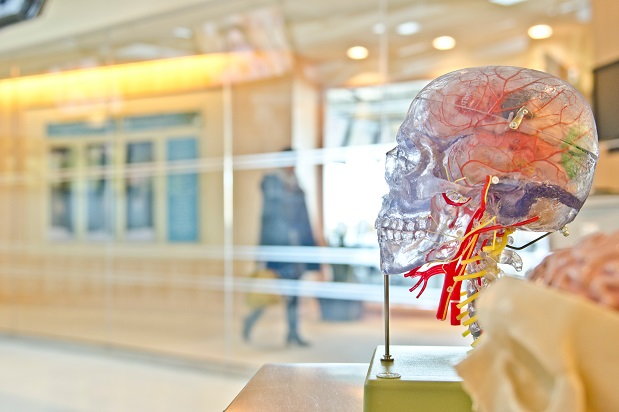In the United States alone, a shocking 14.5 million people over the age of 12 suffer from alcohol use disorder.1 This mental health condition renders individuals unable to control the quantity and frequency of drinking behaviors and often grow physically dependent on needing alcohol to function.
Despite how socially acceptable drinking alcohol is in today’s culture, months or years of consistently drinking in excess can lead to serious long-term health consequences on the body and brain, with recovery possible for the brain after stopping alcohol consumption entirely.
How Does Alcohol Affect the Body and Brain?
Alcohol is a substance that lies under the category of depressants, which means that it slows down the central nervous system. More specifically, alcohol impacts various neurotransmitters in the brain. This includes increasing the energy-reducing GABA and pleasure-inducing dopamine levels while simultaneously decreasing the excitatory neurotransmitter glutamate.
In the short term, this causes individuals drinking to experience symptoms such as:
- Slurred speech
- Dizziness and balance problems
- Nausea and vomiting
- Impaired memory and decision making
Long-Term Impact of Alcohol On The Brain
Long-term drinking patterns can lead to many health conditions, especially those related to the brain. The long-term effect of alcohol on the brain is dependent on the quantity and frequency of alcohol consumption and the specific risk factors each individual possesses. Three detrimental impacts that alcohol can make, primarily on a heavy drinker’s brain, include:
Brain Shrinkage
Decreased volume of parts of the brain, such as the hippocampus and frontal lobe, can be associated with long-term drinking. Brain shrinkage, otherwise known as cerebral atrophy, from drinking is often associated with changes to cognitive functioning and neurotransmitter systems, decreased neural pathways, and memory issues.
One longitudinal study over 30 years found that alcohol drinker’s brains shrunk in the hippocampal region, which is the part of the brain responsible for memory and learning.2 While there was shrinkage even for participants with moderate drinking patterns, researchers only found cognitive decline in heavy drinkers.
Changes to Neural Circuits and Neurotransmitters
There are significant lasting changes to the neural circuits and balance of neurotransmitters in the brain after long-term alcohol abuse. Chronic alcohol exposure has been found to change the neural circuits responsible for motivational processes, including stress, arousal, and rewards.3
Because the brain has become so used to alcohol consistently disrupting the balance of neurotransmitters, it starts to overcompensate to combat the signals that alcohol brings. This means that when alcohol isn’t present as usual, the brain’s neurotransmitters are thrown off their new balance. This contributes to severe and potentially dangerous withdrawal symptoms such as anxiety, depression, nausea, dizziness, tremors, and seizures.
Wernicke–Korsakoff Syndrome
One of the most severe complications associated with heavy alcohol use is Wernicke-Korsakoff Syndrome. This brain disorder is usually a result of a deficiency in a vitamin called thiamine, a deficiency that is present in 80% of those with alcohol addiction.4
The two types of conditions that stem from this disease include:
- Wernicke’s encephalopathy: Wernicke’s encephalopathy is an acute brain condition that may cause ocular problems, confusion, tremors, and balance issues. This condition can often precede the more severe Korsakoff psychosis.
- Korsakoff psychosis: Korsakoff psychosis is a more intense and chronic condition than Wernicke’s encephalopathy that causes short-term and long-term memory problems, confusion, and emotional and behavioral changes.
The Brain After Stopping Alcohol: Healing Is Possible
If you are struggling with alcohol addiction and are worried about the neurological implications it brings, it is essential to remember that recovery is possible for everyone. Although there is no guarantee that everyone will completely reverse their long-term brain damage from alcohol use, there is ample evidence that reveals the ways the brain can in many ways heal after stopping alcohol.
Of course, the level of brain recovery that occurs often depends on an alcohol drinker’s level of usage and dependence. For example, someone that has a drink every once in a while is likely to suffer much milder complications than those with a full-blown alcohol use disorder. Here is an overview of the healing for various levels of alcohol consumption:
Casual Drinking
A casual drinker of alcohol will have the best outcomes of brain recovery than any other group. While moderate drinking can still cause brain shrinkage, it is at a much less severe level than the heavy drinker, making the casual drinker’s brain return to almost complete normalcy after abstaining from alcohol.
Daily Severe Drinking
Someone that drinks daily for several years will recover to an extent. As discussed earlier, brain shrinkage or atrophy is a common side effect of heavy drinking over time. Luckily, the research shows that prolonged abstinence from alcohol for 4-5 years helps global cerebral atrophy return to almost normal levels with a coinciding improvement in neuropsychological performance as well.5
It is important to note that some of the cognitive functions lost from brain damage won’t return to 100% normalcy after abstinence. Studies found that researchers continued to observe problems with memory, paired-associate learning tasks, and visual-spatial-motor skills in recovered alcoholics.5 Furthermore, long after abstinence, many prior chronic alcohol users are still commonly subject to relapse.3
Weekend Binge-Drinking
Individuals who choose to binge drink or drink large quantities of alcohol in a short period of time are typically subject to irreversible brain damage. One study found that abstaining from alcohol after a single binge episode in rats led to rapid recovery of ventricle volume and metabolite levels rather than permanent effects.6
Reverse Brain Damage with Alcohol Treatment Programs Today
While medications, therapy, and other treatments help cope with brain damage from alcohol, it is clear that abstaining from alcohol entirely is the most effective option for long-term healing.
With a better understanding of the neurological harms of alcohol, what’s stopping you from taking control of your drinking patterns today? To reverse some of the damages of alcohol on your brain, enroll in alcohol addiction treatment with Ocean Hills Recovery to begin your sober lifestyle today.
Sources:
[1] https://www.niaaa.nih.gov/publications/brochures-and-fact-sheets/alcohol-facts-and-statistics
[2] https://www.health.harvard.edu/blog/this-is-your-brain-on-alcohol-2017071412000
[3] https://www.ncbi.nlm.nih.gov/pmc/articles/PMC2770186/
[4] https://pubs.niaaa.nih.gov/publications/aa63/aa63.htm
[5] https://pubs.niaaa.nih.gov/publications/10report/chap02e.pdf








